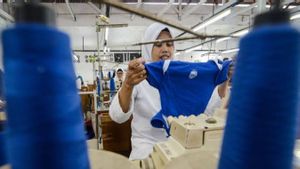JAKARTA - Kaspersky sees the future of MetaOffice in the midst of environmental developments influenced by rapid digitization, roboticization and innovation processes such as human augmentation technology.
Moreover, the increase was triggered by a post-pandemic trend that brought the work culture to a completely new level, with a hybrid workspace.
"The speed with which human augmentation develops within the company will depend on the business's ability to move quickly and efficiently," said Marco Preuss, Deputy Director, Global Research & Analysis Team (GREAT) at Kaspersky in a statement received in Jakarta.
In the recent vision of Discover 2030 presented by Nokia, human augmentation is seen as a key element in the transformation of future corporate networks that serve as opportunities for business growth.
In fact, the latest IDC 2021-2026 Human Augmentation forecast also states that European businesses are increasing their investment in augmentation technology.
Perhaps, Kaspersky said, a few years ago someone would not have imagined working in a'metaoffice/metaoffice office'. But now, that's not just reality, but the only way future offices can develop.
According to him, companies need to adapt to new models in the office environment for digital routes, by ensuring several important things, such as security and digital inclusion.
Digital Inclusion
This augmentation technology aims to replace human body parts with artificial implants, they are also considered to improve their quality of life.
According to Kaspersky's research, people are concerned about improving physical health (40 percent) or vision (33 percent). In addition, augmentation brings individual skills to a new level that provides benefits for the company because it can help overcome the labor gaps predicted by the world.
Thus, Kaspersky said that the company's approach to "metaoffices" should eliminate negative scenarios such as people who decide not to improve (augmentation) themselves.
Companies should consider the work environment as a comfortable and inclusive place for people like that, as well as social support for employees who want to improve themselves.
Digital Security
Global human augmentation market growth is expected to grow fourfold to US$498 billion (Rp7.7 quadrillion) by 2028, and is accompanied by security uncertainty and risks.
However, when talking about the company's business and security in this regard, it's not just about the personal data of the person being added, but about the possibility of getting wider access to the company's IT infrastructure. To reduce security risks, creating a safe enterprise environment such as a comprehensive cybersecurity policy for bionic devices is certainly very necessary.
"With this in mind, the company can provoke more opportunities for human augmentation to be included in the company environment and to realize the transformation of the workplace so that everyone can jointly contribute to the creation and development of metaoffice." Marco added.
The English, Chinese, Japanese, Arabic, and French versions are automatically generated by the AI. So there may still be inaccuracies in translating, please always see Indonesian as our main language. (system supported by DigitalSiber.id)













